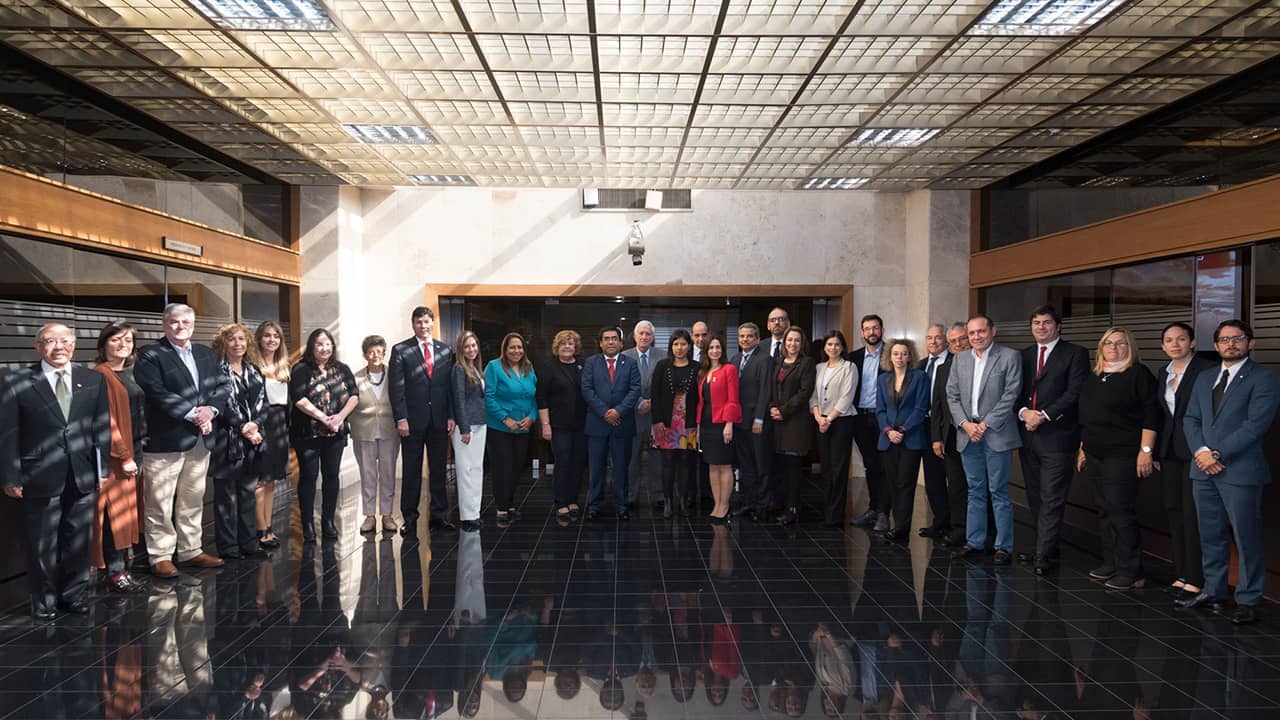
On 6 and 7 May 2019, the House of Representatives of Uruguay hosted forty participants from Latin America, including parliamentarians from ten countries, government representatives and autonomous authorities from Uruguay, representatives of the diplomatic community, international organizations, and the civil society. Why? To discuss and reflect on international justice as a fundamental tool to strengthen the rule of law, the protection of human rights and democratic governance in the framework of the Subregional Workshop co-organized by Parliamentarians for Global Action (PGA).

Today, multilateralism is being questioned as an effective tool to resolve global issues. New threats and the evolution of weapons and methods of warfare undermine peace and democratic values. We continue to witness the commission of international crimes, namely, crimes against humanity, genocide, war crimes and the crime of aggression and the attempts of perpetrators to evade accountability. As for the Latin American region, human rights abuses in Venezuela and Nicaragua continue to occur, while countries such as El Salvador and Guatemala are debating the approval of amnesty laws for international crimes.
In light of the above, participants of the Subregional Workshop on International Justice expressed their support for the accountability system of the Rome Statute of the International Criminal Court (ICC). Its implementation in domestic legal frameworks is a key requirement to reinforce the Rule of Law, the protection of the human rights of civilians and the integrity of territories. The event was part of a series of parliamentary seminars and workshops organized by PGA in Montevideo, Uruguay, since 2012.
The Latin American commitment to the principle "Never Again"
No one should oppose the fight against impunity Dip. Cecilia Bottino, Speaker of the House of Representatives of Uruguay
Latin America has significantly contributed to the consolidation of an international criminal justice system based on the ICC. The joint effort of the Latin American parliamentarians and PGA led to the ratification of the Rome Statute in all countries of the region, with the exception of Nicaragua, and to the ratification of the Kampala amendments to the Rome Statute on the crime of aggression by seven countries. However, despite these achievements, there are still many challenges to the universality and effectiveness of the Rome Statute system and accountability for the commission of international crimes and serious violations of human rights.
On this occasion, the topics discussed were the following ones:
- Regional mechanisms to fight impunity for human rights violations
- The COPLA initiative (Latin American and Caribbean Criminal Court against Transnational Organized Crime)
- The Proposed Convention on the Prevention and Punishment of Crimes Against Humanity,
- The reparatory mandate of the Rome Statute of the ICC implemented through the Trust Fund for the Victims (TFV)
- The case of Colombia before and after the 2016 Peace Agreements
- The advances and challenges in the region to the full implementation of the Rome Statute in domestic legal frameworks.
- The amendments to the Rome Statute.
Actions, not Rhetoric
At the end of the two-day workshop, as it is a practice in PGA events, parliamentarians in attendance committed themselves to use their legislative and political prerogatives to advance certain objectives pertinent to their respective countries, including: the ratification and full implementation of the Rome Statute and Kampala amendments in their domestic legal frameworks; the adoption of laws of cooperation with the ICC; the conclusion of bilateral cooperation agreements with the Court; the commitment to support the Rome Statute system and the Inter-American Human Rights System in national and international fora, as well as supporting Mutual Legal Assistance in Criminal Matters.
